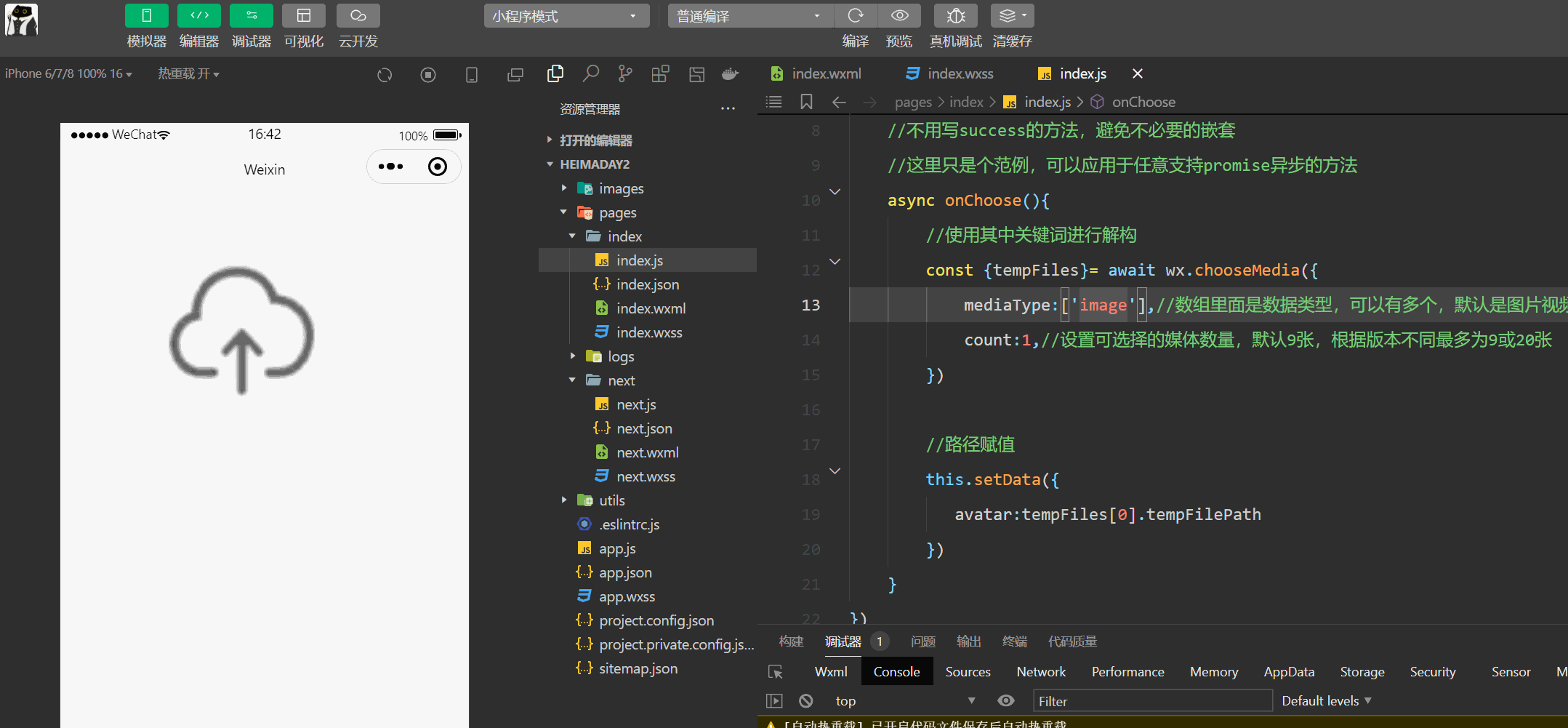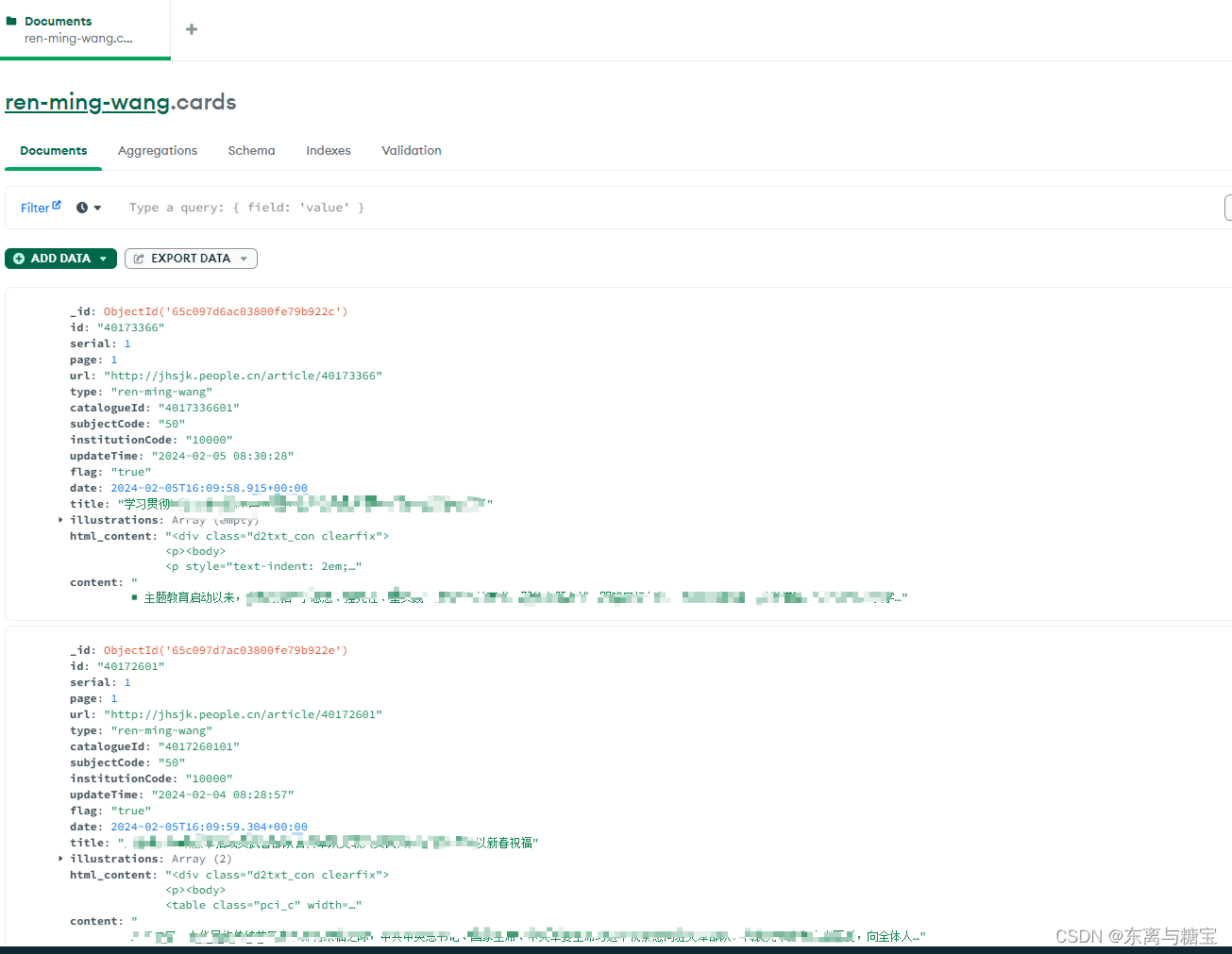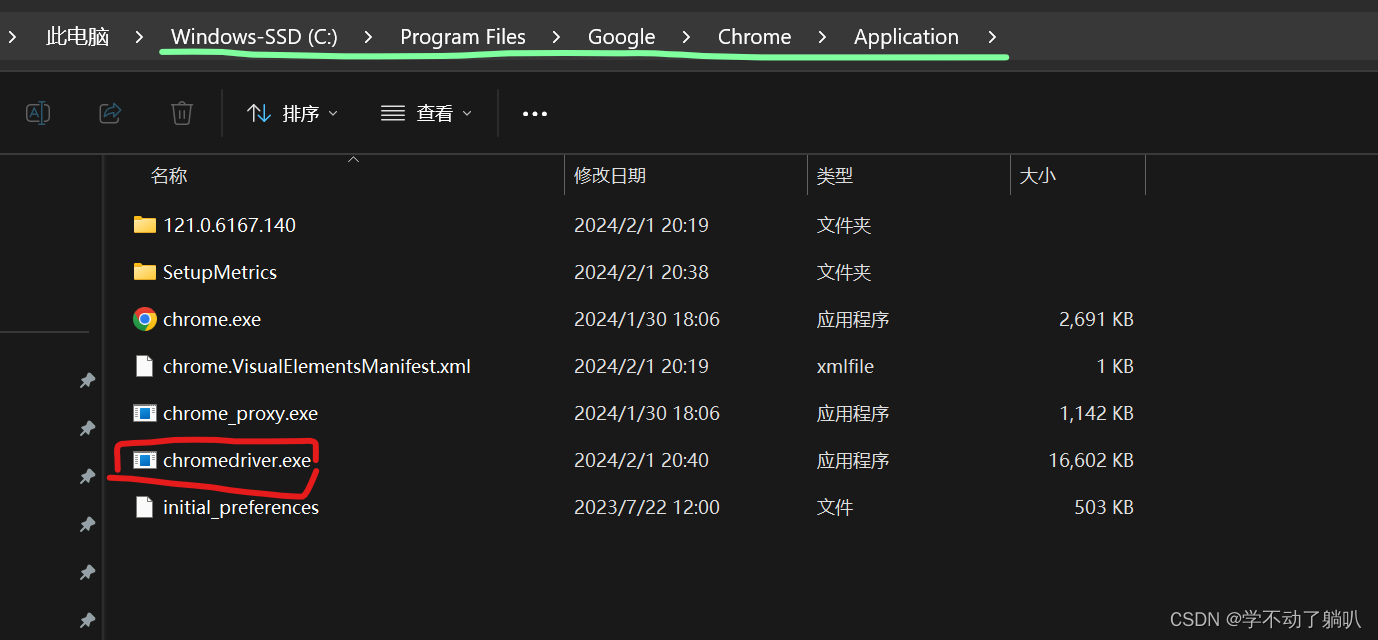1. 协程的基本原理
1.1 案例引入
import logging
import time
import requests
logging.basicConfig(
level=logging.INFO,
format='%(asctime)s %(levelname)s: %(message)s')
URL = "https://www.httpbin.org/delay/5"
TOTAL_NUMBER = 10
start_time = time.time()
for _ in range(1, TOTAL_NUMBER):
logging.info(f"scraping {URL}")
response = requests.get(URL)
end_time = time.time()
logging.info(f"total time {end_time - start_time}")
1.2 基础知识
阻塞
非阻塞
同步
异步
多进程
协程
1.3 协程的用法
1.4 定义协程
import asyncio
async def execute(x):
print(f"Number: {x}")
coroutine = execute(1)
print(f"Coroutine: {coroutine}")
print("After calling execute")
loop = asyncio.get_event_loop()
loop.run_until_complete(coroutine)
print("After calling loop")
import asyncio
async def execute(x):
print(f"Number: {x}")
coroutine = execute(1)
print(f"Coroutine: {coroutine}")
print("After calling execute")
loop = asyncio.get_event_loop()
task = loop.create_task(coroutine)
print(f"Task: {task}")
loop.run_until_complete(task)
print(f"Task: {task}")
print("After calling loop")
import asyncio
async def execute(x):
print(f"Number: {x}")
coroutine = execute(1)
print(f"Coroutine: {coroutine}")
print("After calling execute")
task = asyncio.ensure_future(coroutine)
print(f"Task: {task}")
loop = asyncio.get_event_loop()
loop.run_until_complete(task)
print(f"Task: {task}")
print("After calling loop")
1.5 绑定回调
import asyncio
import requests
async def request():
url = "https://www.baidu.com/"
status = requests.get(url)
return status
def callback(task):
print(f"Status: {task.result()}")
coroutine = request()
task = asyncio.ensure_future(coroutine)
task.add_done_callback(callback)
print(f"Task: {task}")
loop = asyncio.get_event_loop()
loop.run_until_complete(task)
print(f"Task: {task}")
- 等效于
import asyncio
import requests
async def request():
url = "https://www.baidu.com/"
status = requests.get(url)
return status
coroutine = request()
task = asyncio.ensure_future(coroutine)
print(f"Task: {task}")
loop = asyncio.get_event_loop()
loop.run_until_complete(task)
print(f"Task: {task}")
print(f"Status: {task.result()}")
1.6 多任务协程
import asyncio
import requests
async def request():
url = "https://www.baidu.com/"
status = requests.get(url)
return status
tasks = [asyncio.ensure_future(request()) for _ in range(5)]
print(f"Tasks: {tasks}")
loop = asyncio.get_event_loop()
loop.run_until_complete(asyncio.wait(tasks))
for task in tasks:
print(f"Task result: {task.result()}")
1.7 协程实现
- 单纯使用上述方法
import asyncio
import time
import requests
async def request():
url = "https://www.httpbin.org/delay/5"
print(f"Waiting for {url}")
response = requests.get(url)
print(f"Response: {response} from {url}")
start = time.time()
tasks = [asyncio.ensure_future(request()) for _ in range(5)]
loop = asyncio.get_event_loop()
loop.run_until_complete(asyncio.wait(tasks))
end = time.time()
print(f"Cost time: {end - start}")
import asyncio
import time
import requests
async def request():
url = "https://www.httpbin.org/delay/5"
print(f"Waiting for {url}")
response = await requests.get(url)
print(f"Response: {response} from {url}")
start = time.time()
tasks = [asyncio.ensure_future(request()) for _ in range(5)]
loop = asyncio.get_event_loop()
loop.run_until_complete(asyncio.wait(tasks))
end = time.time()
print(f"Cost time: {end - start}")
import asyncio
import time
import requests
async def get(url):
return requests.get(url)
async def request():
url = "https://www.httpbin.org/delay/5"
print(f"Waiting for {url}")
response = await get(url)
print(f"Response: {response} from {url}")
start = time.time()
tasks = [asyncio.ensure_future(request()) for _ in range(5)]
loop = asyncio.get_event_loop()
loop.run_until_complete(asyncio.wait(tasks))
end = time.time()
print(f"Cost time: {end - start}")
- 依然没有任何变化
1.8 使用aiohttp
安装
pip3 install aiohttp
使用
import asyncio
import time
import aiohttp
async def get(url):
session = aiohttp.ClientSession()
response = await session.get(url)
await response.text()
await session.close()
return response
async def request():
url = "https://www.httpbin.org/delay/5"
print(f"Waiting for {url}")
response = await get(url)
print(f"Response: {response} from {url}")
start = time.time()
tasks = [asyncio.ensure_future(request()) for _ in range(5)]
loop = asyncio.get_event_loop()
loop.run_until_complete(asyncio.wait(tasks))
end = time.time()
print(f"Cost time: {end - start}")
2. aiohttp的使用
2.1 基本介绍
2.2 基本实例
import aiohttp
import asyncio
async def fetch(session, url):
# 上下文管理器,自动分配和释放资源
async with session.get(url) as response:
return await response.json(), response.status
async def main():
# 上下文管理器,自动分配和释放资源
async with aiohttp.ClientSession() as session:
url = "https://www.httpbin.org/delay/5"
html, status = await fetch(session, url)
print(f"html: {html}")
print(f"status: {status}")
if __name__ == "__main__":
loop = asyncio.get_event_loop()
loop.run_until_complete(main())
# 较高版本的python可以不显示声明事件循环
asyncio.run(main())
2.3 URL参数设置
import aiohttp
import asyncio
async def main():
params = {"name": "abc", "age": 10}
async with aiohttp.ClientSession() as session:
async with session.get("https://www.httpbin.org/get", params=params) as response:
print(await response.text())
if __name__ == "__main__":
asyncio.run(main())
2.4 其他请求类型
session.post("https://www.httpbin.org/post", data=b"data")
session.put("https://www.httpbin.org/put", data=b"data")
session.delete("https://www.httpbin.org/delete")
session.head("https://www.httpbin.org/get")
session.options("https://www.httpbin.org/get")
session.patch("https://www.httpbin.org/patch", data=b"data")
2.5 POST请求
表单提交
import aiohttp
import asyncio
async def main():
data = {"name": "abc", "age": 10}
async with aiohttp.ClientSession() as session:
async with session.post("https://www.httpbin.org/post", data=data) as response:
print(await response.text())
if __name__ == "__main__":
asyncio.run(main())
JSON数据提交
import aiohttp
import asyncio
async def main():
data = {"name": "abc", "age": 10}
async with aiohttp.ClientSession() as session:
async with session.post("https://www.httpbin.org/post", json=data) as response:
print(await response.text())
if __name__ == "__main__":
asyncio.run(main())
2.6 响应
import aiohttp
import asyncio
async def main():
data = {"name": "abc", "age": 10}
async with aiohttp.ClientSession() as session:
async with session.post("https://www.httpbin.org/post", data=data) as response:
print(f"status: {response.status}")
print(f"headers: {response.headers}")
print(f"body: {await response.text()}")
print(f"bytes: {await response.read()}")
print(f"json: {await response.json()}")
if __name__ == "__main__":
asyncio.run(main())
2.7 超时设置
import aiohttp
import asyncio
async def main():
# 设置2秒的超时时间
timeout = aiohttp.ClientTimeout(total=2)
async with aiohttp.ClientSession(timeout=timeout) as session:
async with session.get("https://www.httpbin.org/get") as response:
print(f"status: {response.status}")
if __name__ == "__main__":
asyncio.run(main())
2.8 并发限制
import aiohttp
import asyncio
# 爬取的最大并发量
CONCURRENCY = 5
URL = "https://www.baidu.com/"
# 创建一个信号量对象
semaphore = asyncio.Semaphore(CONCURRENCY)
session = None
async def scrape_api():
# 信号量可以控制进入爬取的最大协程数量
async with semaphore:
print(f"Scraping {URL}")
async with session.get(URL) as response:
await asyncio.sleep(1)
return await response.text()
async def main():
global session
session = aiohttp.ClientSession()
scrape_index_tasks = [
asyncio.ensure_future(
scrape_api()) for _ in range(1000)]
await asyncio.gather(*scrape_index_tasks)
if __name__ == "__main__":
asyncio.run(main())
3. aiohttp异步爬取实战
3.1 案例介绍
3.2 准备工作
3.3 页面分析
- 列表页的Ajax请求接口的格式:https://spa5.scrape.center/api/book/?limit=18&offset={offset}
- Ajax接口返回的数据中有每本书的id,利用id可以进入该书的详情页
- 详情页的Ajax请求接口的格式:https://spa5.scrape.center/detail/{id}
- id:书本身的ID
3.4 实现思路
3.5 基本配置
import logging
logging.basicConfig(
level=logging.INFO,
format='%(asctime)s %(levelname)s: %(message)s')
INDEX_URL = "https://spa5.scrape.center/api/book/?limit=18&offset={offset}"
DETAIL_URL = "https://spa5.scrape.center/detail/{id}"
PAGE_SIZE = 18
PAGE_NUMBER = 100
CONCURRENCY = 5
3.6 爬取列表页
实现
通用的爬取方法
import asyncio
import aiohttp
async def scrape_api(url):
async with semaphore:
try:
logging.info(f"Scraping: {url}")
# verify_ssl: 是否开启SSL认证
async with session.get(url, verify_ssl=False) as response:
return await response.json()
except aiohttp.ClientError:
logging.info(f"Error: {url}", exc_info=True)
爬取列表页
async def scrape_index(page):
url = INDEX_URL.format(offset=PAGE_SIZE * (page - 1))
return await scrape_api(url)
串联并用
import json
async def main():
global session
session = aiohttp.ClientSession()
scrape_index_tasks = [
asyncio.ensure_future(
scrape_index(page)) for page in range(
1, PAGE_NUMBER + 1)]
results = await asyncio.gather(*scrape_index_tasks)
logging.info(
f"Results: {json.dumps(results, ensure_ascii=False, indent=2)}")
if __name__ == "__main__":
asyncio.run(main())
合并
import json
import asyncio
import logging
import aiohttp
logging.basicConfig(
level=logging.INFO,
format='%(asctime)s %(levelname)s: %(message)s')
INDEX_URL = "https://spa5.scrape.center/api/book/?limit=18&offset={offset}"
DETAIL_URL = "https://spa5.scrape.center/detail/{id}"
PAGE_SIZE = 18
PAGE_NUMBER = 100
CONCURRENCY = 5
semaphore = asyncio.Semaphore(CONCURRENCY)
session = None
async def scrape_api(url):
async with semaphore:
try:
logging.info(f"Scraping: {url}")
async with session.get(url, verify_ssl=False) as response:
return await response.json()
except aiohttp.ClientError:
logging.info(f"Error: {url}", exc_info=True)
async def scrape_index(page):
url = INDEX_URL.format(offset=PAGE_SIZE * (page - 1))
return await scrape_api(url)
async def main():
global session
session = aiohttp.ClientSession()
scrape_index_tasks = [
asyncio.ensure_future(
scrape_index(page)) for page in range(
1, PAGE_NUMBER + 1)]
results = await asyncio.gather(*scrape_index_tasks)
logging.info(
f"Results: {json.dumps(results, ensure_ascii=False, indent=2)}")
if __name__ == "__main__":
asyncio.run(main())
3.7 爬取详情页
实现
在main方法中将详情页的ID获取出来
ids = []
for index_data in results:
if not index_data:
continue
for item in index_data.get("results"):
ids.append(item.get("id"))
爬取详情页
async def scrape_detail(id):
url = DETAIL_URL.format(id=id)
data = await scrape_api(url)
logging.info(f"Saving: {data}")
main方法增加对scrape_detail方法的调用
scrape_detail_tasks = [
asyncio.ensure_future(
scrape_detail(id)) for id in ids]
await asyncio.wait(scrape_detail_tasks)
await session.close()
合并
import json
import asyncio
import logging
import aiohttp
logging.basicConfig(
level=logging.INFO,
format='%(asctime)s %(levelname)s: %(message)s')
INDEX_URL = "https://spa5.scrape.center/api/book/?limit=18&offset={offset}"
DETAIL_URL = "https://spa5.scrape.center/api/book/{id}"
PAGE_SIZE = 18
PAGE_NUMBER = 100
CONCURRENCY = 5
semaphore = asyncio.Semaphore(CONCURRENCY)
session = None
async def scrape_api(url):
async with semaphore:
try:
logging.info(f"Scraping: {url}")
async with session.get(url, verify_ssl=False) as response:
return await response.json()
except aiohttp.ClientError:
logging.info(f"Error: {url}", exc_info=True)
async def scrape_index(page):
url = INDEX_URL.format(offset=PAGE_SIZE * (page - 1))
return await scrape_api(url)
async def scrape_detail(id):
url = DETAIL_URL.format(id=id)
data = await scrape_api(url)
logging.info(f"Saving {url}: {data}")
async def main():
global session
session = aiohttp.ClientSession()
scrape_index_tasks = [
asyncio.ensure_future(
scrape_index(page)) for page in range(
1, PAGE_NUMBER + 1)]
results = await asyncio.gather(*scrape_index_tasks)
logging.info(
f"Results: {json.dumps(results, ensure_ascii=False, indent=2)}")
ids = []
for index_data in results:
if not index_data:
continue
for item in index_data.get("results"):
ids.append(item.get("id"))
scrape_detail_tasks = [
asyncio.ensure_future(
scrape_detail(id)) for id in ids]
await asyncio.wait(scrape_detail_tasks)
await session.close()
if __name__ == "__main__":
asyncio.run(main())
原文地址:https://blog.csdn.net/BlackOrnate/article/details/134735439
本文来自互联网用户投稿,该文观点仅代表作者本人,不代表本站立场。本站仅提供信息存储空间服务,不拥有所有权,不承担相关法律责任。
如若转载,请注明出处:http://www.7code.cn/show_28676.html
如若内容造成侵权/违法违规/事实不符,请联系代码007邮箱:suwngjj01@126.com进行投诉反馈,一经查实,立即删除!
声明:本站所有文章,如无特殊说明或标注,均为本站原创发布。任何个人或组织,在未征得本站同意时,禁止复制、盗用、采集、发布本站内容到任何网站、书籍等各类媒体平台。如若本站内容侵犯了原著者的合法权益,可联系我们进行处理。






